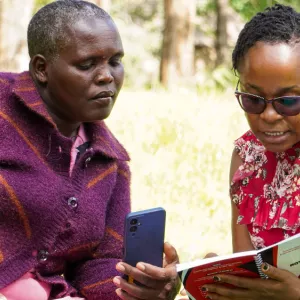Enhancing Indigenous Peoples’ participation in climate policy processes
In a new opinion piece, just published earlier on PLOS Climate, ClimBeR researchers highlight key challenges and evidence gaps across sectors and disciplines ahead of COP29, with a focus on climate justice and the application of a social equity lens to enhance Indigenous Peoples’ participation in climate policy processes. Globally, Indigenous Peoples have been portrayed as highly vulnerable to climate

Enhancing Indigenous Peoples’ participation in climate policy processes
In a new opinion piece, just published earlier on PLOS Climate, ClimBeR researchers highlight key challenges and evidence gaps across sectors and disciplines ahead of COP29, with a focus on climate justice and the application of a social equity lens to enhance Indigenous Peoples’ participation in climate policy processes.
Globally, Indigenous Peoples have been portrayed as highly vulnerable to climate change while at the same time possessing the skills and knowledge that are critical to the climate response. To date, Indigenous Peoples continue to be the poorest of the poor. Ending poverty in all its forms requires fair and inclusive sustainable development processes and practices.
Indigenous Peoples’ participation in environmental governance is one of several key pathways through which they actively engage with nature. While their contributions have often been underrepresented in international climate negotiations processes and fora, in recent years, this has begun to change.
Enhancing Indigenous Peoples’ participation in climate policy processes partly rests on the premise of climate justice, tackling the root causes of complex inequalities and making political choices about the redistribution of benefits.
Climate justice, therefore, must ensure Indigenous Peoples’ right to full and effective participation in policy processes. This requires a more explicit focus on and context-specific understanding of social equity which allows for greater participation of the most vulnerable, even within Indigenous communities.
A more explicit focus on social equity and context specificity contributes to ensuring that Indigenous Peoples have a political voice and can fully participate in identifying and realizing climate-resilient transformation pathways.
Read the complete opinion piece here to learn more about what the authors have to say about what needs to be done to ensure that Indigenous Peoples completely and meaningfully engage in climate policy processes for more equitable and inclusive outcomes.
Related resources:
Blog: ClimBeR at COP28: Ensuring that local voices matter
Blog: #Weareindigenous: working towards a seat at the table, not just on the sidelines
Voices of Change video series: https://www.youtube.com/@cemiride/playlists
Blog: Voices of Change: Community stories of climate adaptation in Baringo, Kenya – CGIAR
Blog: Local knowledge for global decision-making
Feature image and photo credit: Perspectives captured from Indigenous communities in the Baringo for the Voices of Change series/ClimBeR

